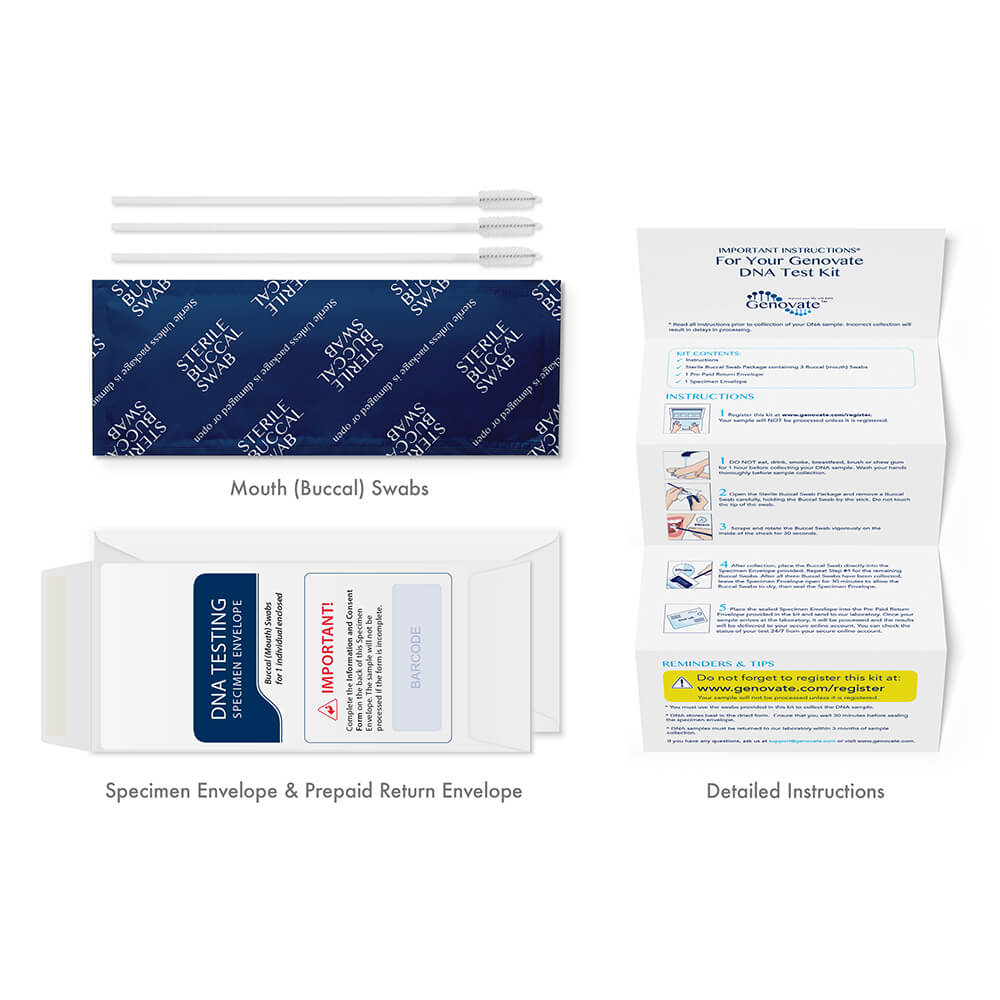Are you getting the most out of your fitness routine?
Are you struggling to improve your fitness for next year’s football season?
Or maybe you are just interested to know why you have great sprinting ability but your endurance ability is considerably lacking?
It all comes down to genetics!
This genetic analysis examines genes that influence your athletic ability and your response to exercise, allowing you to create a personalized exercise plan based on your genetics, so that you can get the most benefit from your exercise routine.
Start a personalized exercise plan based on your DNA to get the best results
Physical activity is essential for a healthy body and mind. Everyone responds differently to different types of exercises, whether the goal is to lose weight, improve muscle tone or run a faster marathon. For example, some overweight individuals will lose significant weight by starting a walking or running program. Others won’t lose any weight with this method, but may see great benefits from strength training at the gym. An individual’s upbringing, current lifestyle and genetic variation all contribute to these differences.
Recent studies have identified multiple genetic variants that are more prevalent in endurance athletes, while different genetic variants frequently occur in sprinters and other power athletes. Genetic variation also influences an individual’s exercise motivation, exercise tolerance, susceptibility to injury and pain tolerance. An understanding of your genetics is very beneficial to allow for a personalized exercise program to achieve specific sport and health goals. The genetic variants identified in this panel have been studied in Caucasian populations, but the same association may not be apparent in other ethnicities.
One fitness plan does not fit all
- Identify genetic variants that influence your athletic ability and response to exercise
- Understand your risk of soft tissue injury and Achilles tendinopathy
- Find out how well you can tolerate pain and how you will respond to pain medication when injured
- Find out which type of exercises are most beneficial for your muscle type
- Start a personalized exercise plan based on your DNA to get the best results
Genetic variants identified in this test
This test identifies genetic variants that influence your athletic endurance, athletic power, muscular strength, response to exercise, exercise motivation, recovery rate, injury risk and pain tolerance.
Athletic endurance is the ability to continue exercising for an extended period. Endurance events include long-distance running, swimming, cycling, mountain climbing and rowing, but we also require endurance to get through a game of soccer or rugby. Athletic endurance is influenced by genetic variations of:
- PPARD – burning fat for energy
- VEGFA – blood vessel formation to improve oxygen supply
- ACE – blood pressure regulation and muscle efficiency
- ADRB2 – turning off the fight or flight response
- PPARA – slow-twitch versus fast-twitch muscle fibres
Athletic power combines strength with a speed ability to apply this strength in a quick motion. For example, a sprinter requires strength and speed for a rapid acceleration, while a baseball pitcher requires a very strong arm that can rapidly rotate resulting in pitches as fast as 100 mph! Athletic power is influenced by genetic variations of:
- ACTN3 – the “sprinter” gene
- AGT – blood pressure regulation and growth hormone levels
Strength training is physical exercise specializing in the use of resistance to induce muscular contraction, which builds the strength and size of skeletal muscles. Muscular strength is influenced by genetic variations of:
- ACVR1B – muscle signalling cascade that controls muscle mass and muscle strength
- IL6 – messenger molecule and contributes to muscle growth
Response to exercise differs from individual to individual. Some people see greater benefits from endurance training, while others benefit more from strength training. Your exercise response is influenced by genetic variations of:
- PPARGC1A – aerobic capacity improvements
- PPARD – increases in “good” HDL-cholesterol
- MCT1 – ability to use lactate as an energy source
Motivation, recovery, injury risk and pain tolerance are all influenced by genetic variations:
- BDNF – exercise motivation
- CRP – heart rate recovery
- COL1A1 – risk of soft tissue injury
- COL5A1 – risk of Achilles tendinopathy
- COMT – pain tolerance and required morphine dose
Three Easy Steps
Step 1: Order test kit online
Step 2: Collect DNA sample using a painless mouth swab, and mail to the lab in the provided return envelope
Step 3: Receive your results online
Click here for more details and to watch our explanatory video.
| Our test answers your fitness questions: |
|---|
| ✓ Are you a sprinter? |
| ✓ What is your endurance potential? |
| ✓ Will you benefit from weight training? |
| ✓ Are you affected by pain? |
| ✓ Are you at increased risk of soft tissue injury? |
| ✓ Are you motivated to exercise? |
| ✓ What is your strength capacity? |
| ✓ How quickly can you recover from intense training? |
Related products
Diet & Fitness
Determine if you are at risk of lactose intolerance.
Diet & Fitness
Determine if caffeine increases your risk of health problems.
Diet & Fitness
Find out whether drinking alcohol is harming your health.
Diet & Fitness
Includes nutrition, weight loss and fitness DNA testing - 3 tests for the price of 2!
DNA Gift Ideas
Optimize your skin health based on your genes.
Diet & Fitness
Find out whether you carry any genes associated with celiac disease.
























